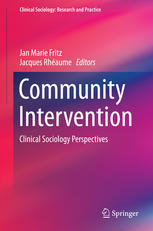

Most ebook files are in PDF format, so you can easily read them using various software such as Foxit Reader or directly on the Google Chrome browser.
Some ebook files are released by publishers in other formats such as .awz, .mobi, .epub, .fb2, etc. You may need to install specific software to read these formats on mobile/PC, such as Calibre.
Please read the tutorial at this link: https://ebookbell.com/faq
We offer FREE conversion to the popular formats you request; however, this may take some time. Therefore, right after payment, please email us, and we will try to provide the service as quickly as possible.
For some exceptional file formats or broken links (if any), please refrain from opening any disputes. Instead, email us first, and we will try to assist within a maximum of 6 hours.
EbookBell Team

0.0
0 reviewsCommunity Intervention: Clinical Sociology Perspectives showcases important efforts to improve the quality of life in communities around the world. The book, a project of the clinical sociology division of the International Sociological Association, describes the interdisciplinary field of clinical sociology in relation to community improvement. The first part of the book covers important concepts and tools for community intervention and identifies a variety of approaches to community research with an emphasis on research that centrally involves community members. The chapters in the second part of the volume focus on projects in a broad range of countries, covering topics such as involving residents in urban renewal projects, developing healthy communities, encouraging socioeconomic development, improving the life of immigrants, helping communities deal with climate change, establishing human rights cities, encouraging empowerment and creating an inclusive community. A unique feature of the book is the inclusion of profiles about some of the outstanding work in community intervention over the last 100 years. These profiles are of Nobel Peace Prize winner Jane Addams; community activist Saul Alinsky; human rights and environmental activist Wangari Maathai and participatory action research pioneer Orlando Fals Borda. Written by scholar-practitioners as well as analysts, the book provides essential commentary regarding community intervention efforts.